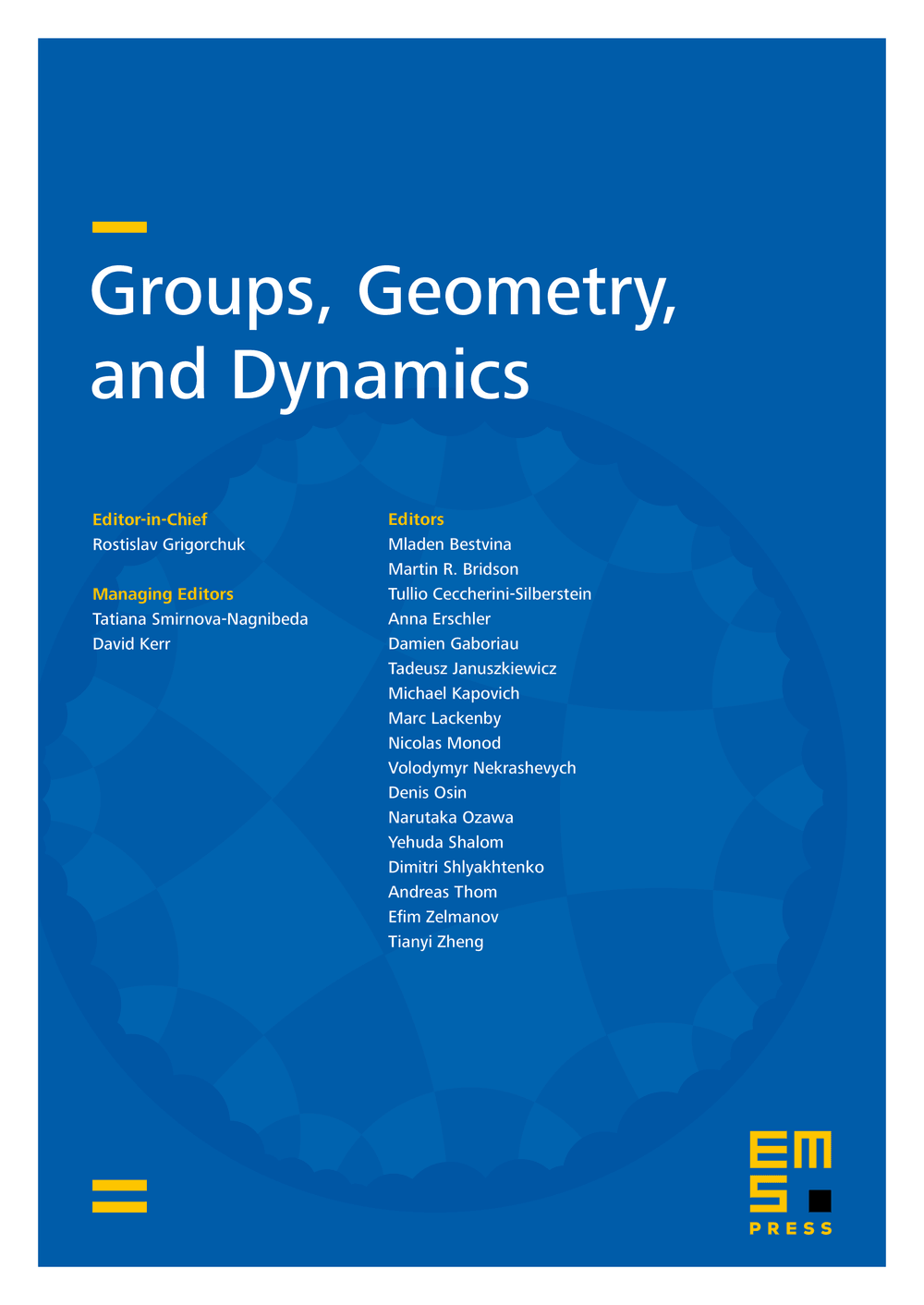Algorithmic aspects of branched coverings III/V. Erasing maps, orbispaces, and the Birman exact sequence
Laurent Bartholdi
Universität des Saarlandes, Saarbrücken, GermanyDzmitry Dudko
Stony Brook University, USA

Abstract
Let be a Thurston map and let be its mapping class biset: isotopy classes rel of maps obtained by pre- and post-composing by the mapping class group of . Let be an -invariant subset, and let be the induced map. We give an analogue of the Birman short exact sequence: just as the mapping class group is an iterated extension of by fundamental groups of punctured spheres, is an iterated extension of by the dynamical biset of .
Thurston equivalence of Thurston maps classically reduces to a conjugacy problem in mapping class bisets. Our short exact sequence of mapping class bisets allows us to reduce in polynomial time the conjugacy problem in to that in . In case is geometric (either expanding or doubly covered by a hyperbolic torus endomorphism) we show that the dynamical biset together with a “portrait of bisets” induced by is a complete conjugacy invariant of .
Along the way, we give a complete description of bisets of -maps as a crossed product of bisets of torus endomorphisms by the cyclic group of order , and we show that non-cyclic orbisphere bisets have no automorphism.
We finally give explicit, efficient algorithms that solve the conjugacy and centralizer problems for bisets of expanding or torus maps.
Cite this article
Laurent Bartholdi, Dzmitry Dudko, Algorithmic aspects of branched coverings III/V. Erasing maps, orbispaces, and the Birman exact sequence. Groups Geom. Dyn. 15 (2021), no. 4, pp. 1197–1265
DOI 10.4171/GGD/629